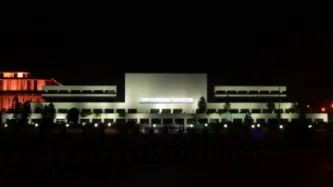Search
Content type: News & Analysis
The government of Pakistan is proposing a new law that significantly threatens privacy rights, in a blatant attempt to establish a legal regime containing broad powers when it comes to obtaining, retaining, and sharing data obtained through criminal investigations, including communications data.
The Prevention of Electronic Crimes Act, 2014, contains worrying aspects that threaten the right to privacy, including a provision that would permit unregulated information sharing with foreign…
Content type: News & Analysis
Privacy International's partner organisation, Bytes for All, has filed a complaint against the Government, decrying the human rights violations inherent in such extensive surveillance and demonstrating how the UK's mass surveillance operations and its policies have a disproportionate impact on those who live outside the country.
Bytes for All, a Pakistan-based human rights organization, filed its complaint in the UK Investigatory Powers Tribunal (IPT), the same venue in which Privacy…
Content type: News & Analysis
As if those in Pakistan did not have enough to worry about when it came to the security of their communications, recent changes to Pakistan’s anti-terror law could see people convicted for terrorism solely on the basis of incriminating text messages, phone calls, or email.
As part of a drive to increase the number of convictions of terror suspects, the government of Pakistan has recently beefed up its anti-terror laws through a presidential ordinance that will permit…
Content type: News & Analysis
The government of Pakistan has repeatedly shown it is relentless when it comes to deploying measures to censor and spy on its own citizens. Today, a report released by Citizen Lab reveals another repressive tool being used to control and prevent information being accessed on the internet -- this time with help from the Canadian web-filtering company, Netsweeper.
According to the report "O Pakistan, We Stand on Guard for Thee: An Analysis of Canada-based Netsweeper’s Role in Pakistan’s…
Content type: News & Analysis
Modern information and communications technologies are now seamlessly integrated into our daily lives. Internet-based communications are no longer a luxury, but rather a necessity, for people across the globe. This is particularly the case in developing countries where, as well as helping individuals communicate, learn and connect, technologies play a vital role in advancing fundamental human rights and fuelling social progress.
It is therefore hardly surprising that ICTs are increasingly…
Content type: Press release
In an advertisement placed in national newspapers yesterday (23rd February), the National ICT R&D Fund of Pakistan (which operates under the auspices of the Ministry of Information Technology) requested proposals for "the development, deployment and operation of a national level URL Filtering and Blocking System". Further information provided on the Fund's website stated:
"Internet access in Pakistan is mostly unrestricted and unfiltered...Many countries have deployed web…
Content type: Press release
In collaboration with the Wall Street Journal and the Guardian, Privacy International today published a database of all attendees at six ISS World surveillance trade shows, held in Washington DC, Dubai and Prague between 2006 and 2009. ISS World is the biggest of the surveillance industry conferences, and attendance costs up to $1,295 per guest. Hundreds of attendees are listed, ranging from the Tucson Police Department, to the government of Pakistan, to the International…




